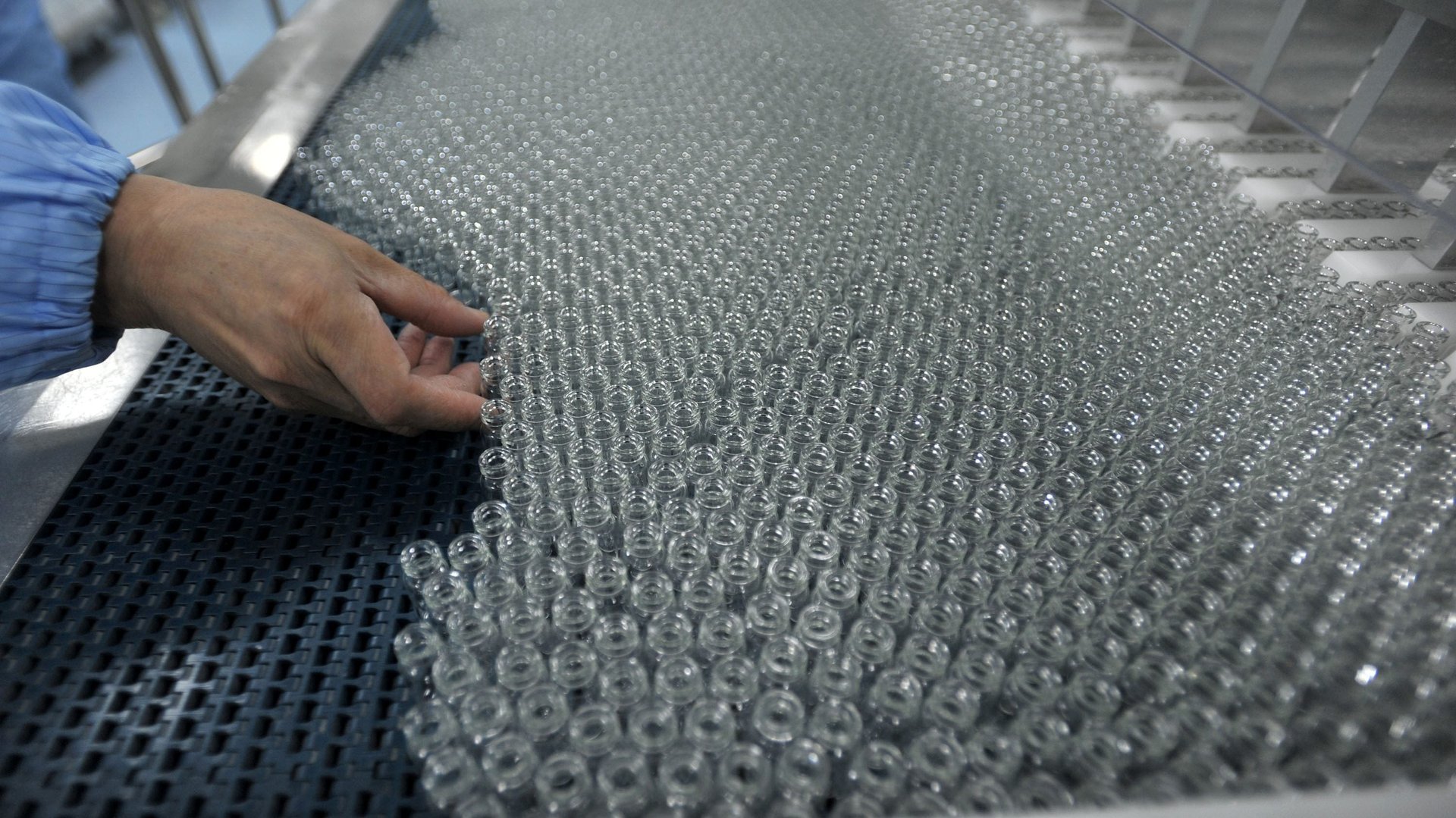The countries that will be first in line to get a coronavirus vaccine
If scientists find a successful coronavirus vaccine—which is still “if,” rather than “when”—the companies that own the rights will face the difficult question of who gets the first doses.


If scientists find a successful coronavirus vaccine—which is still “if,” rather than “when”—the companies that own the rights will face the difficult question of who gets the first doses.
Researching and producing a vaccine costs billions of dollars, so governments around the world are offering major funding in exchange for the promise of early batches. Inevitably, the richest countries are more likely to get a vaccine fastest.
The table below shows ongoing public deals for the first vaccines being developed by different companies, in order of the country or institution that has pre-ordered the greatest number of doses.
Some of these deals, including the two within the European Union and the UK’s deal with Sanofi and GlaxoSmithKline, are still in negotiation. Others did not disclose the volume of vaccines to be produced: Israel is working to source vaccines from Moderna and AstraZeneca, for example.
While the US and India’s Serum Institute are snapping up the greatest volume of pre-orders, not all deals are made equal. AstraZeneca’s arrangements with Gavi, the Coalition for Epidemic Preparedness Innovations (CEPI), and the Serum Institute of India are intended to distribute the vaccine to low-and-middle income countries. Russia’s drugmaker R-Pharm plans to distribute AstraZeneca’s vaccine internationally, while Brazil licensed the ability to produce it domestically.
The biggest deals don’t necessarily line up with the most advanced vaccine trials. Currently, six institutions are conducting phase three trials, the large-scale efficacy studies that are the final hurdle before drug approval. One of these trials doesn’t have particularly promising results, but is in advanced stages because it’s testing an approved tuberculosis vaccine.
That leaves five vaccines in late-stage trials. One is created by AstraZeneca and the University of Oxford, which is fielding four different deals. Pfizer and Moderna announced the start of their phase three trials on July 27. And two are created by Chinese companies: Sinopharm and Sinovac.
Those two companies are notably underrepresented among existing deals. China’s president President Xi Jinping told the World Health Organization (WHO) in May that any vaccine developed nationally would be a “global public good.” But while AstraZeneca and Pfizer have made commitments in exchange for funding, the Chinese companies’ arrangements are less clear.
Sinovac is offering some vaccines in exchange for conducting trials internationally: The company has a licensing agreement with Brazil, while a Bangladesh health ministry official told Reuters the country would “get priority” for any vaccine successfully developed. Sinopharm hasn’t made such clear-cut public deals.
The comparative lack of funding for Chinese companies means they have less means to bulk up production. AstraZeneca has committed to producing 2 billion doses, and expects to deliver much of this by early 2021. Pfizer, which is collaborating with German company BioNTech and Chinese company Fosun Pharma, said it expects to produce 1.3 billion doses by the end of 2021.
In comparison, Sinopharm is expanding production to 200 million vaccine doses a year, while Sinovac Biotech is building a plant to make 100 million doses a year.
Once a successful vaccine is created, there’s some incentive to share: The pandemic won’t die out until it is addressed globally. The chief executive of the vaccine alliance Gavi, Seth Berkley, says the priority should be for every country to get a vaccine to 20% of their population. But as long as supplies are limited, it’s likely that countries will put their own citizens first.